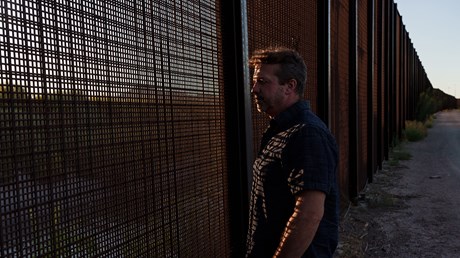Equipped with Scripture, history, and a defunct restaurant on the southern border, Sami DiPasquale hopes he can soften politics-hardened hearts.
When Sami DiPasquale visited conflict-torn Kurdistan for a research trip in 2009, he did not expect anyone there to know or care much about where he lived: El Paso, Texas. But when he told people where he was from, their eyes would widen.
El Paso! Wow! Isn’t it dangerous?
Aren’t things kind of crazy there?
He was barraged with similar questions about the southern US border in Egypt when he traveled there with a nonprofit in 2015. And in Thailand. And in Italy, which he visited in 2017 for his wedding anniversary.
Even in the United States, it was clear that people he met knew his town mostly as a symbol of chaos and violence at the nation’s border—despite the fact that El Paso consistently ranks as one of America’s safest major cities.
Over time, a wild idea took shape in DiPasquale’s imagination. What if El Paso could instead be sacred ground, a place where pilgrims came to seek the heart of God?
That idea is why, on a sunny March afternoon earlier this year, DiPasquale was leading a nine-person group from Christ Church Austin on a tour along the border wall. DiPasquale is the executive director of Abara, a nonprofit that seeks to build “connections beyond borders through mutual understanding, education, and meaningful action.” One way Abara does that is through Border Encounters, three-day educational immersion trips to the border.
That afternoon, the Border Encounter group shielded their eyes from the sun and walked beside the 30-foot-high steel slats dividing El Paso and Ciudad Juárez, Texas and Mexico. On a crunchy patch of dirt, the travelers came to a granite plaque commemorating El Paso pioneer Simeon Hart, who on that spot in the 1850s built his private residence, …
